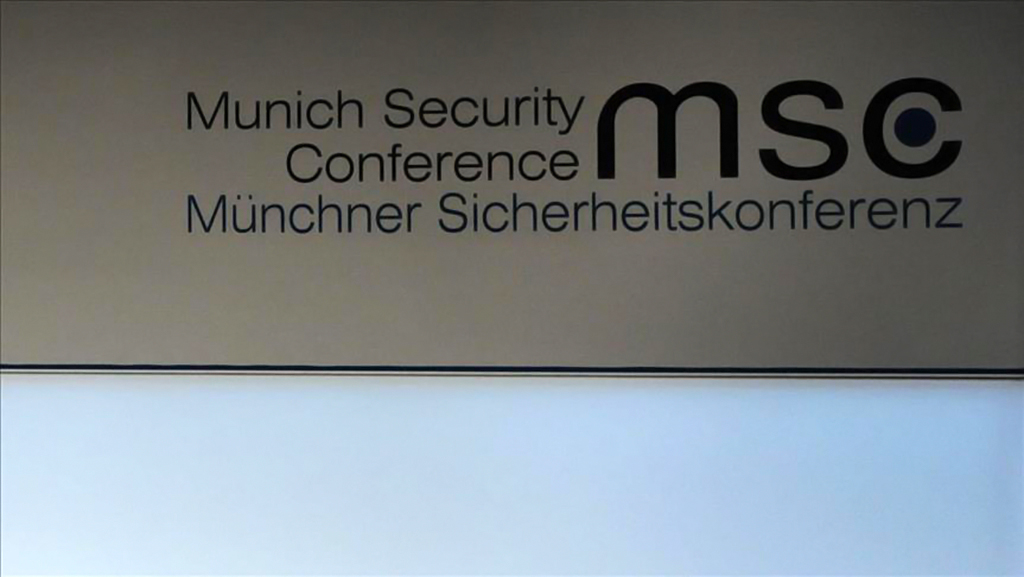Syrian refugees and the CHP's culture of hate
Neoliberal consensus has dissolved across Europe over the past 10 years..
More


A post-Daesh strategy without Turkey is unrealistic
U.S. President Donald Trump is eager to declare victory against Daesh, yet his military commanders express concerns that the terrorist defeat might be short-lived.
More
In fact, potential cooperation between China and Russia is mentioned as one of the significant threats for U.S. foreign policy. Of course this is the perspective of the U.S. and it is possible to read most of the decisions given by the U.S. administrations in the last few years in accordance with this changing threat assessment and perception.
Two meetings took place earlier this week in Warsaw and Sochi that were crucial for the future of the Middle East.
Belgian-born parliamentarian Mahinur Ozdemir says Muslims who wear Islamic garb get intense media scrutiny
The Munich Security Conference is an influential platform where global security trends are discussed every year by academics and policymakers.
SETA Security Radar | Turkey's Security Landscape in 2019
This work aims to provide a timely and accessible assessment of the challenges awaiting Turkey in 2019. Hence, SETA Security Radar: Turkey’s Security Landscape in 2019 pertains to the following topics: Turkey’s role in Syria, Turkey’s counterterrorism strategy, Turkey’s military activism, the Turkish defense agenda, Turkey and the Eastern Mediterranean, and Turkey’s bilateral relations with the United States and Russia.
More


Trump's Syria plan is doomed to fail without Turkey
In the absence of an agreement with Turkey, a hasty U.S. withdrawal from Syria won't solve any problems but rather fuel the present conflicts in the country
More
Turkish authorities are determined to find a sustainable solution to the problem created by the presence of the People's Protection Units (YPG) in northern Syria before the war-torn country reaches a permanent political solution.
The Trump administration has been sending mixed signals about reducing the U.S. military footprint around the world and launching new interventions.
An American intervention in the ongoing crisis in Venezuela will not solve the problem; it will make the situation in the country worse
Erdoğan's call on Maduro to ‘stand tall' reflects a sense of long-standing unity that began when the Venezuelan leader had expressed solidarity with Turkey during the July 15, 2016 coup attempt
Head of Geylani Foundation in Rotterdam urges Dutch government to take immediate action against attacks
After U.S. President Donald Trump's decision to withdraw U.S. soldiers from Syria and his ensuing statements where he attributes the strong positive role that Turkey would play in the fight with remnants of Daesh, many analysts in Western media have expressed their doubts.
Daesh terrorist group 'not an existential threat to the United States,' says Mark Kimmitt
The AK Party's campaign for the March local elections involves both contemporary and traditional methods of reaching voters, and seems to be winning the support of all the generations
U.S. President Donald Trump's proposal to create a safe zone in northern Syria continues to make headlines.
Since the phone call between U.S. President Donald Trump and President Recep Tayyip Erdoğan, there has been a debate about the Turkish viewpoint and position about the U.S. withdrawal from Syria.
The United States has been following unsteady Middle East policies, especially in the Syrian crisis.
The Trump administration remains confused and divided over Washington's imminent withdrawal from Syria. Most recently, Secretary of State Mike Pompeo visited the Middle East in an attempt to reassure U.S. allies, who are concerned that the U.S. withdrawal will serve Turkish and Iranian interests.
It has been more than three weeks since U.S. President Donald Trump made his announcement about his decision to withdraw American troops from Syria. Trump's decision immediately created controversy in Washington. Many officials, advisers, and members of the U.S. Congress advised the president to reconsider or at least revise his withdrawal decision.

















